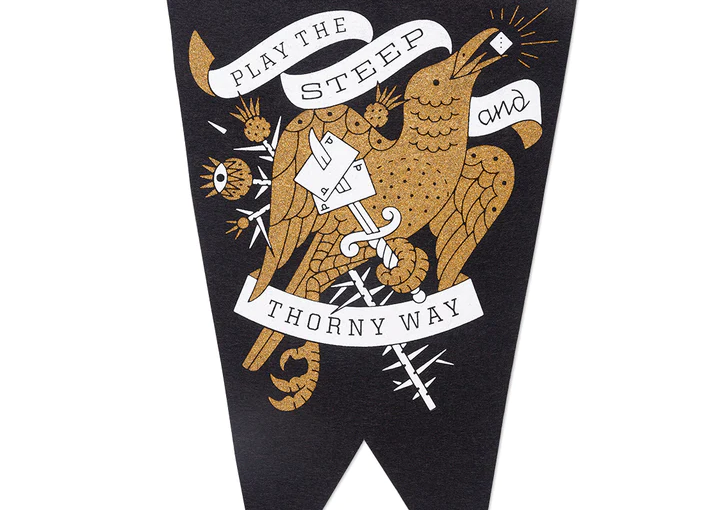One of my favourite video games is Elsinore (2019). It is the game of Hamlet as experienced by Ophelia. Except Ophelia is mixed race. And she is killed. And every time she is killed, she wakes up at the start of the story with another chance to play her last days over again until she does it right and she lives and no one else that she loves dies.
Elsinore resolves one of the largest problems that is inherent in almost every player-driven narrative video game, which is this: on the first play through of a game, a player cannot understand the ramifications of the choices they have just made.
But, that’s like life, I suppose.
We start our life’s journey with only one heart. Then you have dysentery and you die. There are no quarters that allow you to play again if you are violently pushed off course by a hurtling object. You do not want to be an NPC in someone else’s first person shooter experience.
I keep reading reviewers and hearing readers describe Tomorrow, Tomorrow and Tomorrow as a book about video games. But it’s not.
And this is how I know. In the notes section at the end of book, the author Gabrielle Zevin tells us this herself. She states, “Tomorrow, Tomorrow, and Tomorrow is a novel about work”.
The book’s official blurb expands on this statement. It describes the novel as one in which “two friends–often in love, but never lovers–come together as creative partners in the world of video game design, where success brings them fame, joy, tragedy, duplicity, and, ultimately, a kind of immortality”.
And on that note, I should warn you dear reader that, like Macbeth, there is tragedy in this book. There is violence and there is trauma and there is grief. Work is offered as a salve to these pains.
Also. two of the main characters of this novel are mixed race. So is the author of the novel and the author of the text you are currently reading.
Now, far be it for me to tell the author what her book is about. But I can describe to you the book that I just finished reading. And to me, Tomorrow and Tomorrow and Tomorrow is not about video games or work. It is about stories.
The best review that I’ve read of Tomorrow and Tomorrow and Tomorrow is How to Design a Beautiful, Cruel Universe by Tom Bissel in The New York Times, but I don’t recommend you read it until after you’ve read the novel because he names some of the painful events in the book that I have only vaguely gestured to here.
Bissel took notice of the same thing that I did. He saw the work that Sadie and Sam engage in, as depicted in this novel, as not a realistic or recognizable form of the creation of video games.
There’s very little depiction of how central play-testing and quality assurance are to game design, or of nuking core design conceits because of cost overruns or talent underruns. For the most part, Sam and Sadie’s games tend to work out the way they imagine they will, yet one of the most critically acclaimed titles I ever worked on, “What Remains of Edith Finch,” a game about a cursed family whose members all perish in freak accidents, began its life as a scuba simulator, of all things.
What Sadie and Sam do in the novel – through the guise of video game design – is create stories with and for each other. Unable to replay their past, as both the main characters grow older they re-interpret their shared history to play out their future with each other. Unwilling (or unable) to allow Sadie to leave his life, Sam uses the work of game design to try to keep her creating shared stories with him.
A relationship is just another form of world-building.
As film-maker Céline Sciamma has put it,
“Do all lovers feel they’re inventing something?” It’s a knock-out line. “A relationship is about inventing your own language,” says Sciamma. “You’ve got the jokes, you’ve got the songs, you have this anecdote that’s going to make you laugh three years later. It’s this language that you build. That’s what you mourn for when you’re losing someone you love. This language you’re not going to speak with anybody else.”
But Sam and Sadie are not lovers. They are creative partners at work. And in the Note that ends the novel, Zevin tells us that the book is equally about love as it is about work. Tomorrow and Tomorrow and Tomorrow explores how those engaged in creative work can occupy a space between friends and lovers. In the telling of this tale, video games become a stage where these characters perform their private lives for both a public and for each other.
Tomorrow, and tomorrow, and tomorrow,
William Shakespeare, from Macbeth, spoken by Macbeth
Creeps in this petty pace from day to day,
To the last syllable of recorded time;
And all our yesterdays have lighted fools
The way to dusty death. Out, out, brief candle!
Life’s but a walking shadow, a poor player,
That struts and frets his hour upon the stage,
And then is heard no more. It is a tale
Told by an idiot, full of sound and fury,
Signifying nothing.
